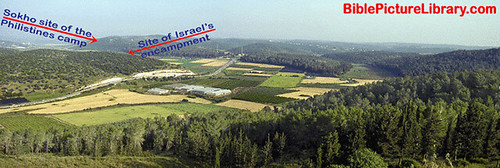It’s also the site of Khirbet Qeiyafa, an archaeological discovery of great significance in the last few years deemed to be, by some archaeologists at least, the palace of King David. Combine this with breathtaking views, and rare flora and fauna, and you have all the makings of an earthly paradise, one which has gone largely unnoticed by many Israelis. Open spaces like the Valley of Elah are especially significant in Israel, given the dearth of space in general, and of open spaces in particular.
So while it may not be realistic to prevent the expansion or building of new housing projects in sensitive areas in every instance, the plans to expand the area known as Ramat Beit Shemesh are especially egregious. Perched above the valley, these sterile, incongruous looking buildings will cut into the hills surrounding it, causing severe ecological and archaeological damage and encircle Khirbet Qeiyafa. To those who have visited East Jerusalem, they might be reminded by settlements like Har Homa, a large, hulking blight of a development.
As activists claimed, this area might act as a canary in the coalmine–a warning that, if areas of such significance are treated in this manner, it’s only a matter of time before other open spaces succumb to a similar fate. The issue is currently held up in a district court, which has given activists time to rally more Israelis to their cause. In a country full of people who have fetishized land to the point of refusing its partition, witnessing this total disregard of environmental and religious sensitives smacked of a particularly ugly hypocrisy.
What most struck me most about the event, however, was the makeup of its participants. Environmental issues in Israel are almost always identified as left-wing causes (as they are in most Western nations), the majority of those in attendance were local citizens from the area, many of them of a religious bent. With the exception of one notable activist associated with the Zionist Union, there were few other conspicuous ‘leftists’; in fact, the contingency of people arriving from Tel Aviv for the event could be counted on one hand. It’s of course likely that the biblical significance of the area played a defining role in galvanizing them to join the campaign. Nonetheless, it shows that monopolization of causes by a progressive audience is a myth, and a dangerous one at that. It also means that progressive forces in Israel, and in the next Knesset in particular, should seek out like-minded politicians on the center and the right. Stay tuned for more developments.








Leave A Comment